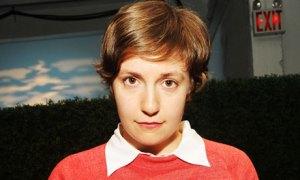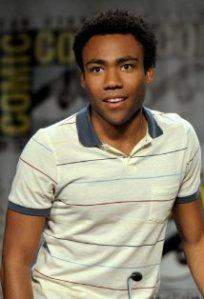Except it’s nothing like Aussie politics, and so much better.
Hey guys, I’m back – but more importantly, so is GIRLS.
Happy new year, everybody! I hope you have all made some resolutions that you resolve not to break, I know I have. I have been absent from the blogosphere for four weeks now after a few busy schedules, injuries and setbacks…
But hey, I’m back. Sup?
Then again, my absence and return has been overshadowed – quite rightly – by the return of Lena Dunham and Judd Apatow’s HBO series GIRLS. If you haven’t seen this brilliant series – you need to get on it. It chronicles the experiences of Lena Dunham’s Hannah Horvath and her three gal pals. The series casts a less-than-romantic light on the girls’ experiences, boyfriends, eating habits, nakedness, jobs, and mistakes. People have been comparing it to Sex and the City – and in a sense, I guess their kind of right… if Sex and the City was less romanticised, 10 years younger, less successful and more imperfect. It’s like a raw, honest, humorous and relatable version of Sex and the City.
Thus, GIRLS is Sex and the City meets The Wire.
Not really. At all.
“You are from New York. Therefore, you are just naturally interesting,” says Hannah, reassuring herself in the bathroom mirror.
Lena Dunham is brave and honest in her delivery, plot themes and storytelling. She is also very naked, quite a lot. Dunham shows herself in compromising positions with her unrequited love interest/sex-partner-turned-boyfriend Adam, who, in Hannah’s words, “treats my heart like monkey meat”. There is a scene where Hannah returns to her hometown and binge eats – she just stands at the fridge and eats anything and everything – it’s one of my favorite scenes because it is so human, but it is something that is rarely portrayed on television. The reason I found the shot so enjoyable is because in shows like Gossip Girl and 90210 (etc.) the consistently flawless, made-up characters never eat normal foods in a normal way, or go to the toilet, or have moments where a visitor drops in and they’re in their underpants or pajamas (unless it’s a silk nightgown) – these soapy characters will have eye drops at the ready to execute the perfect tear falling down their cheek while a One Republic song plays in the background. Also, they will most likely be dressed in a beautiful ball gown when they get their heart broken or a fight breaks out – because everything always turns dramatic when you coincidently look amazing in a Valentino gown. Correct me if I’m wrong.
(Note: I’m wrong.)
GIRLS has received momentous praise since its premier and continues to reach a wider audience while gathering its own cult-following. However, with high praise comes harsh criticism. Critics have described Dunham’s creation as a naval-gazing portrait of “white girls, money, and whining”. The show received criticism for its lack of diversity – to which Dunham responded with this:
“Our generation is not just white girls. It’s guys. Women of color. Gay people. The idea that I could speak for everyone is absurd…but what is nice is if I could speak for me and it resonated with people,”.
Pop culture writer Jenn Hoffman defended Dunham, saying: “Most wealthy white girls in America are surrounded by other wealthy white people, so that’s who they choose to be friends with. So what? Are we so immature that we need to throw a token African-American or Asian to make us feel better about the fact that some white people have zero exposure to diversity? That doesn’t help bring races together or heal inequality,”

Lena Dunham
The show is called GIRLS for a reason, and it’s based on Dunham’s experiences as a middle-class white (not that it really matters), 20-something female who is struggling (in a first world sense) with independent living in New York. So what that there isn’t any dire struggle depicted in the series, so what that she hangs out with three other white girls – it’s far less transparent than adding one African-American woman to snap her fingers and say sassy things – or any other racial or gender typecast you can think of. Dunham is being realistic. The show is also self-aware of its narrow voice and first world issues, and that’s where the humor comes into play. In one scene, Hannah (Dunham’s character) is fighting with love interest Adam, and he comments on her self-interested, naval-gazing ways, telling her that she doesn’t know struggle – and she responds with “I am 13 pounds overweight and it has been awful for me my entire life!” If you think she is being legitimately dramatic in this scene, then I‘d say you’ve misunderstood the premise of the series and Dunham’s creative abilities.
The show finally speaks for one of television’s central demographics: 20-some-things who can’t relate to the easiness of Friends, the glamour and melodrama of Gossip Girl, or pretty much anything from The Wire. Dunham is writing what she knows – reality. Girly reality. The show covers themes that are far more realistic than someone blackmailing you and having sex with someone’s evil twin who just came out of a coma who is actually Ridge Forrester. GIRLS focuses on things that usually happen but are not really spoken about. For example, the first season covers themes of independence, getting cut off from your parents, STD scares, abortions, fitting in, sexual harassment in the workplace, and most importantly, female bonding. That “female bonding” point may sound a little cheesy, but the portrayal of the importance of female friendship and unity on television is an important part of feminism, so it’s wonderful to see that kind of depiction on the screen rather than females fighting over a man and terrorising one another. Just because the four central characters are white, it doesn’t mean that anyone from any race, gender or sexual orientation can’t relate to the content, themes, emotions or humor. Now, in my opinion, the assumption that nobody but wealthy white women can relate to this show or these issues – is discriminative.

Donald Glover
I’m looking forward to the new season of GIRLS for many reasons – the most significant of which is Donald Glover’s addition to the cast. Glover (from NBC’s Community) is set to play Sandy, a republican who points out Hannah’s close-mindedness when it comes to race and politics.
I was apprehensive when I had first heard of the show, but after watching the pilot I realised that this show isn’t just a shallow depiction of some middle class white girls.
It’s about a bit more than that.
Watch it for yourself.

